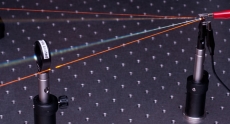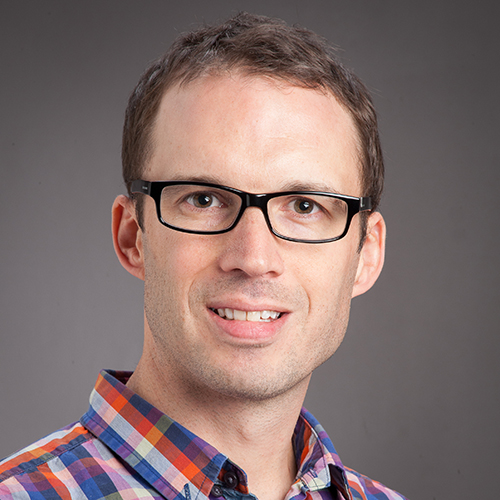Ultrafast laser spectroscopy
This research group, led by Justin Hodgkiss, studies the effect of very short laser pulses on new photo-active materials.

Research focus
We study the effect of very short laser pulses on new photo-active materials, and, by observing the resulting electronic dynamics, gather information about the electronic functionality of the material.
Our research is part of a worldwide effort to develop new applications for printable plastic electronics, such as solar cells and biosensors. These plastic electronic devices could potentially be made for a fraction of the cost of conventional alternatives.
A key to the development of these materials is an understanding of their electronic dynamics on a wide range of timescales—something that has not been possible until recently. Our leading-edge facilities enable us to probe the electronic dynamics of materials from femtoseconds to milliseconds, and guides the design of more effective materials for low-cost plastic electronics.

We have developed ultrafast laser spectroscopy methods to investigate the mechanism of photocurrent generation in plastic solar cells. These experiments with laser light can be likened to strobe photography but have a billion-fold better time resolution, as the laser pulses can be as short as 30 femtoseconds (1 femtosecond = 10-15 second). This enhanced resolution enables us to observe the exceptionally fast electronic changes in a material and construct a picture of the electronic dynamics triggered by the absorption of a photon.
Read more about our ultrafast laser facilities.
Our research is interdisciplinary and draws on a range of other tools to characterise the structural, optical, and electronic properties of materials and functional devices.
These techniques include steady state optical spectroscopy, spectrally-resolved photocurrent measurement, and atomic force and electron microscopy. We fabricate samples in the cleanroom at Te Herenga Waka—Victoria University of Wellington.
Collaborations
Our work is linked with the other New Zealand groups through the MacDiarmid Institute for Advanced Materials and Nanotechnology. We also participate in a number of international collaborations including groups in Australia, Korea, Singapore, USA, France and the UK.

